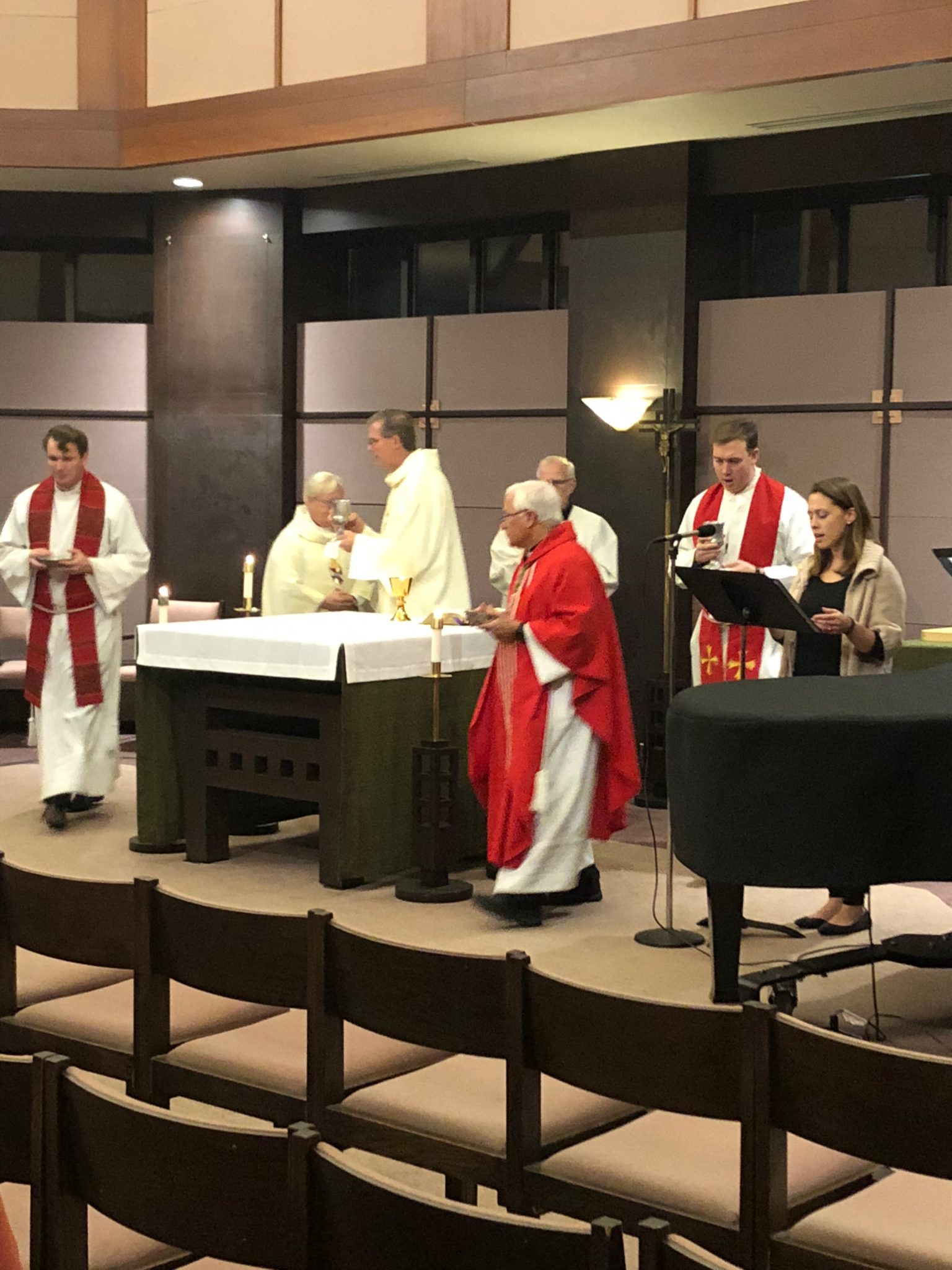
COLLEEN JURKIEWICZ
CATHOLIC HERALD STAFF
In his homily for the annual “White Coat Mass” for healthcare professionals Oct. 18, Bishop Jeffrey Haines shared an old story about St. Camillus de Lellis, a pioneer of the field hospital and champion of compassionate medical care for all.
One day, so goes the story, St. Camillus was tending to a sick patient in his hospital when a cardinal of the Church came to visit. A messenger interrupted Camillus and encouraged him to take leave of his patient, as one of the princes of the Church was waiting for him. St. Camillus responded: “Tell the cardinal to wait. Right now, I am with Jesus Christ.”
The concepts of grace, mercy and redemption are mighty strands in the tether that exists between a doctor and his patient, who can find reflected in one another both the suffering and strength of Christ. This spiritual dimension of the medical vocation was celebrated both in the Mass, held at the Chapel of the Holy Family at the Marquette Alumni Memorial Union, and in the lecture at the Raynor Library which followed it.
Given by renowned intensivist and researcher Dr. Wes Ely, the address was entitled “Faith at the End of Life: Insights from an Intensivist,” and focused on the increasingly accepted trend of physician-assisted suicide and euthanasia around the world.
The presentation was sponsored by the Wisconsin Geriatric Education Center, Ascension, the Marquette University College of Nursing and the Milwaukee Guild of the Catholic Medical Association.
Dr. Ely, a graduate of the Tulane University School of Medicine, is a professor of medicine at Vanderbilt University School of Medicine with subspecialty training in Pulmonary and Critical Care Medicine. He has more than 400 peer-reviewed publications and more than 50 published book chapters and editorials, and is also a devout Catholic.
“We as Catholics have to realize what a holy time it is, this period of death,” he said during his lecture. “And even in the face of suffering – especially in the face of suffering – we can join Christ on His path to Golgotha and to the Cross.”
Dr. Ely cited both secular writers like Kant and Nietzche as well as theological giants like St. John Paul II to illustrate that this trend of medically-sponsored death – which often occurs without the consent of the patient – is a betrayal not only of the teaching of Christ but of the medical profession itself.
He lamented the co-opting of the idea of “a dignified death” by the pro-euthanasia movement. “Do you want to have a dignified death? Of course you do. Does that meant you want euthanasia? No,” he said. “These terms … were literally usurped from the language because now they mean ‘euthanasia’ and ‘physician-assisted suicide.’ This is verbicide – because he who controls language controls society. It is confused thinking to consider deliberate killing as dignified.”
Dr. Ely argued that the widespread acceptance of physician-assisted suicide and euthanasia is ultimately leading to a barbaric victimization of vulnerable patients who have no family to advocate for them. He presented data from a paper published in the New England Journal of Medicine that showed the prevalence of intentional killing without patient permission in Flanders, Belgium – more than 1,000 individuals in just one year, in only that particular region. This will most often happen when a patient is unconscious and critically ill, and when medical personnel judge that “there are plenty of other people who can use this bed better,” said Dr. Ely.
“Who will that happen to? That will happen to uneducated, poor, disabled. The least of our society – not the least-valued, but those who have the least voice,” he said.
“The Catholic Church has always been about standing up for those who don’t have a voice. This is the crux of the entire matter. The reason that physician-assisted suicide and euthanasia are so (flawed) is not that somebody can’t choose to take their own life. They can. God gives us free will. But what’s so wrong about it is that doctors and the medical profession should never be involved. As soon as that happens, the most vulnerable in society will be taken advantage of.”
